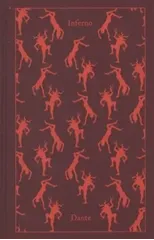Vita Nuova (1292-94) is regarded as Dante's most profound creation. The thirty-one poems in this, the first of his major writings, are linked by a lyrical prose narrative celebrating and debating the subject of love. Composed upon Dante's meeting with Beatrice and the "Lord of Love," it is a love story set to the task of confirming the "new life" this meeting inspired. With a critical introduction and explanatory notes, this is a new translation of a supreme work which has been read variously as biography, religious allegory, and a meditation on poetry itself.
Dante
Dante Alighieri was a prominent Italian poet from the late Middle Ages, known for his significant contributions to literature. His most notable work, "The Divine Comedy," is a monumental epic poem that is considered one of the greatest literary works in the Western canon. Dante's writing style is characterized by its intricate symbolism, vivid imagery, and profound philosophical themes.
"The Divine Comedy" follows the journey of the protagonist, Dante himself, through the three realms of the afterlife: Hell, Purgatory, and Heaven. Through his exploration of morality, politics, and religion, Dante's work has had a lasting impact on the development of the literary genre of allegorical poetry.
Dante's work continues to inspire countless writers and artists, and his influence can be seen in various forms of literature, art, and culture. His legacy as a literary giant remains unparalleled, and his works continue to be studied and celebrated worldwide.





